Nigeria
As most oil producing nations of the world grapple with recent recession, Africa’s biggest economy, Nigeria, is in talks with the World Bank and Africa Development Bank for a loan.
Africa’s largest economy is reported to have asked for some $3.5 billion emergency loan from the two institutions.
This is to help fund the state’s deficit of $15 billion and fill up gap in its budget as a result of recent economic recession facing oil producing nations due to the decline in oil prices.
But Finance Minister, Kemi Adeosun said the country has not officially applied for any emergency loan.
“We have held exploratory talks with the World Bank. We have not applied for emergency loans,” she told Reuters news agency.
Also in a statement, the finance ministry indicated it was looking at “options” to borrow from the African Development bank and the China Exim Bank “due to their concessionary rates of interest”. However, a Nigerian economist, Opeyemi Agbaje said it is obvious the country is in need of such loan. He said the country has a minimum deficit of 2.2 trillion Naira (above $10 billion) adding that there is a big gap in the 2016 projected budget.
“But the question is how would the government fund it?”
He noted that the International bodies would likely ask the International Monetary Fund (IMF) about Nigeria and this may constitute a constrain as the body had already called on the country to devalue its currency.
Agbaje said the three basic issues that could arise in the process are: currency devaluation, income based tax and diversification of revenue from oil.
According to Kemi Adeosun, Nigeria is planning to borrow as much as $5 billion to help fund budget deficit due to a slump in oil revenues. She said, $4 billion would come from International Institutions and the rest from Eurobonds.
She noted that the country was also planning to return to bond markets since 2013. Nigeria’s borrowing costs have risen alongside its budget deficit.
A projected deficit of $11 billion, or 2.2 per cent of gross domestic product, had already risen to $15 billion, or 3 per cent, as a result of the recent turmoil in oil markets.
Borrowing from international institutions such as the World Bank would be a cost-effective way to raise money to fund the increased capital expenditure in the 2016 budget, she said.
Nigeria is Africa’s largest economy and has been hit hard by the recent decline in crude prices. The country’s revenue is expected to fall from 70 percent this year.




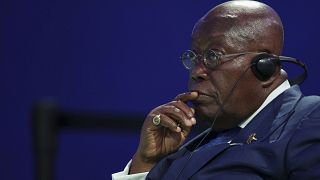
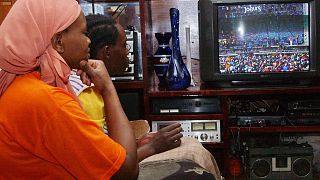
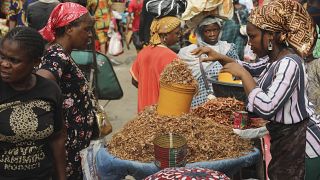

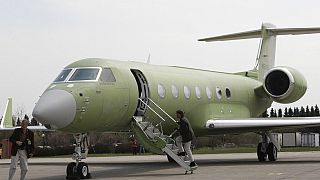

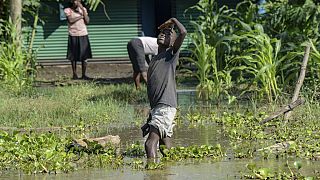
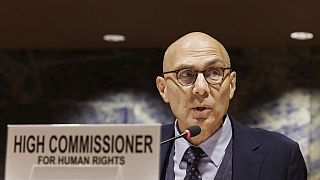

01:02
Pics of the day: April 15, 2024
00:59
Least developed countries getting poorer as gap with richer nations widens - Report
02:41
Lagos marks 10th anniversary of chibok kidnapping
02:44
Addressing Nigeria's Mental Health Challenge Amidst Economic Hardship
02:31
Nigeria: 10 years on from Chibok, kidnappings still frequent
01:29
Nigeria: Muslims mark end of Ramadan with Eid al-Fitr prayers